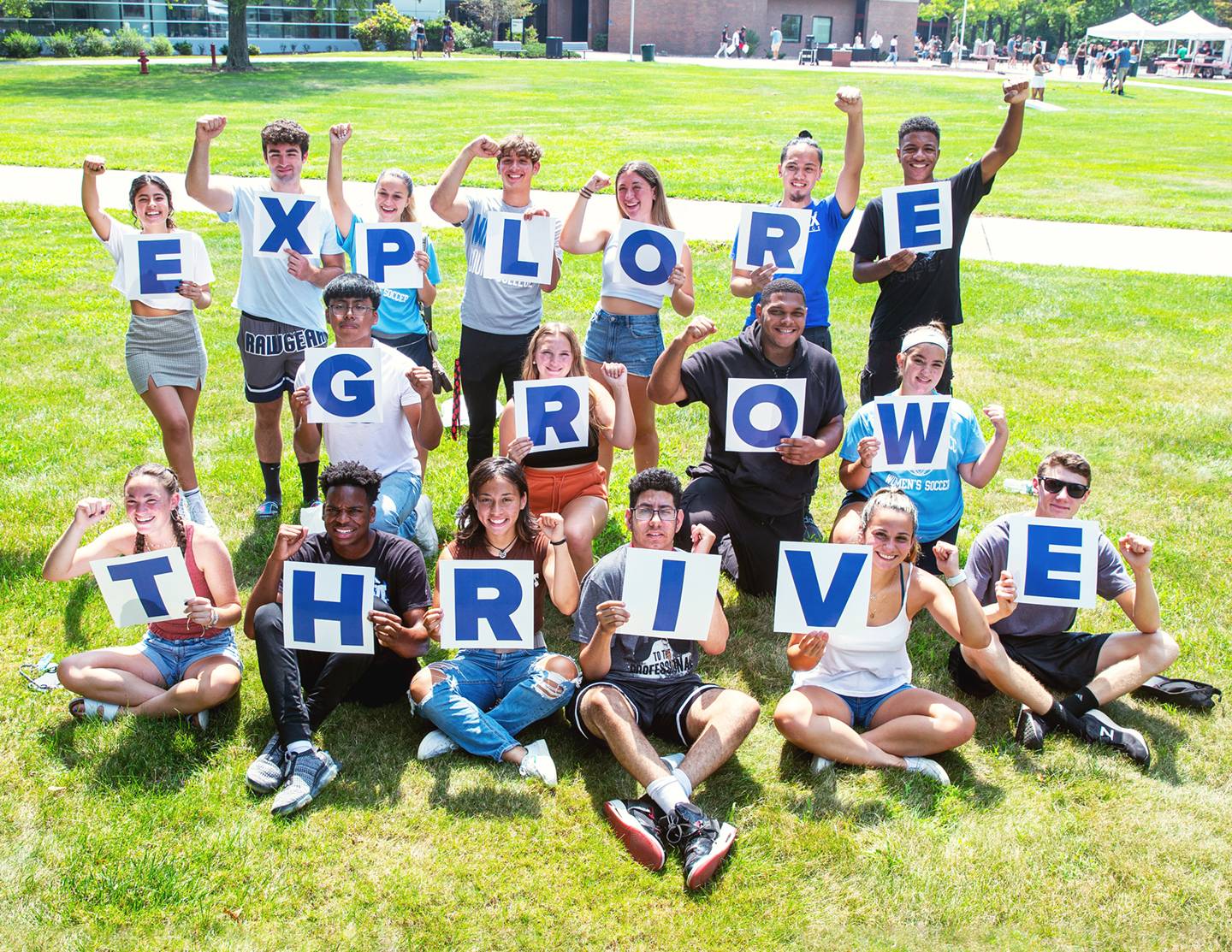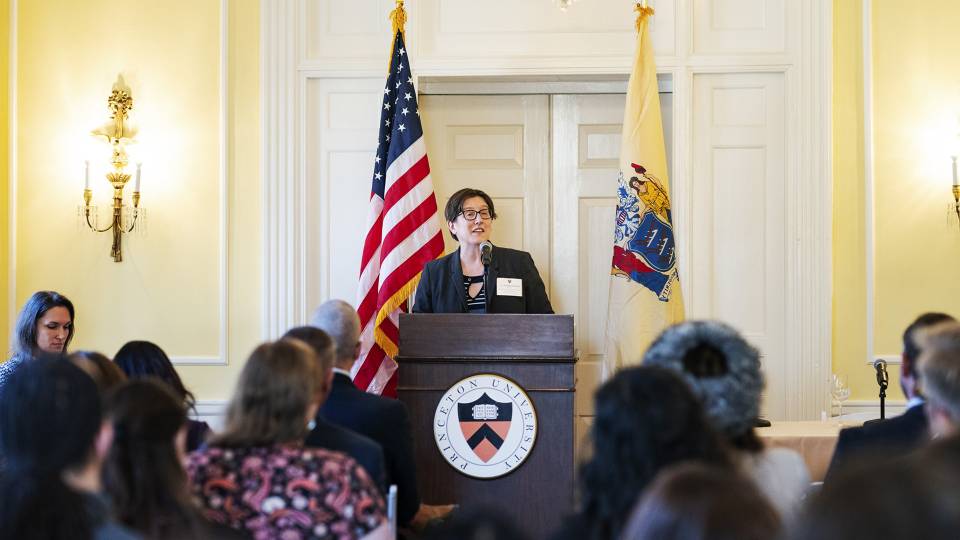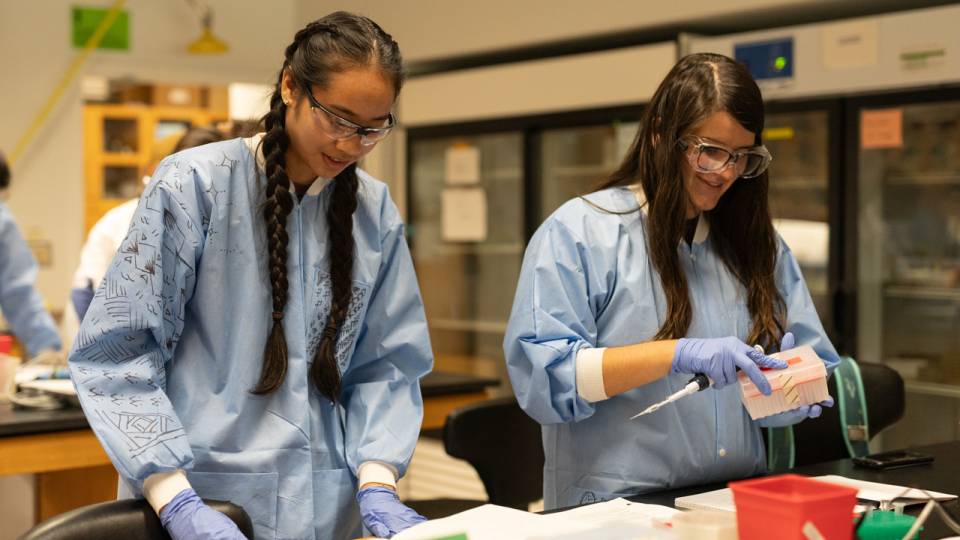Middlesex College will become the fourth school to join Princeton University’s Community College Teaching Partnership. Representatives of Middlesex and Princeton met Sept. 22 to sign an agreement formalizing the relationship.
The program offers community college instructors opportunities for continuing education and professional development at Princeton. It also sends graduate students, the next generation of Princeton-educated academics, to teach the wide range of undergraduates in New Jersey seeking certificates and two-year degrees — and to learn from experienced community college professors.

Representatives from Princeton and Middlesex College met Sept. 22 to formalize Middlesex College's agreement joining Princeton’s Community College Teaching Partnership. Left to right: Eva Kubu, associate dean for professional development and director of GradFUTURES at the Graduate School; Graduate School Dean Rodney Priestley; Middlesex College President Mark McCormick; and Linda Scherr, vice president for academic affairs for Middlesex College.
“Both institutions are investing in making higher education accessible to everyone,” said Rodney Priestley, dean of Princeton’s Graduate School and the Pomeroy and Betty Perry Smith Professor of Chemical and Biological Engineering. “We’re delighted to forge this partnership with Middlesex College. Both Princeton and Middlesex have a deep commitment to making higher education accessible to everyone and to investing in talent in New Jersey and beyond.”
Middlesex College President Mark McCormick said he is pleased by the new partnership, which will benefit Middlesex College’s 16,000 credit and non-credit students, as well as Princeton University graduate students.
“We look forward to connecting our community college faculty, who have years of experience as effective and engaging faculty, as mentors to Princeton University graduate students,” McCormick said. “The community college sector is uniquely positioned to provide opportunities for Princeton University graduate students to engage with a diverse population of learners, with whom they can share their expertise and passion for their fields.”
Middlesex College joins Mercer County Community College, Camden County College and Rowan College of South Jersey as partners in the program.
The Community College Teaching Partnership was established in 2016. The first cohort of four Princeton graduate students began teaching at Mercer County Community College in 2017. The partnership expanded to include Camden County College in 2018 and Rowan College of South Jersey in 2019.

Middlesex College is the fourth New Jersey two-year institution to join the Community College Teaching Partnership. Middlesex offers more than 85 degrees and certificates, and it enrolls approximately 10,000 students per year who receive credit for courses, plus more than 6,000 non-credit students.
Today, Princeton’s Graduate School manages the Community College Teaching Partnership in collaboration with the McGraw Center for Teaching and Learning, which provides graduate students with training and workshops before and during the two-semester fellowship.
In 2021, the University began improving benefits for the community college instructors who mentor Princeton graduate students. Through the Community College Faculty Program, instructors at any of New Jersey’s 18 community colleges can apply for reduced tuition to take classes at Princeton, and as a new incentive, Community College Teaching Partnership mentors are eligible for a free course each semester at Princeton.
These instructors also receive an honorarium from Princeton.
Eva Kubu, associate dean for professional development and director of GradFUTURES at the Graduate School, said the Community College Teaching Partnership and Community College Faculty Program are outstanding examples of how universities and community colleges can work together to find mutual benefit, while also benefitting the state’s residents and businesses.
In addition to providing talented students with on-ramps to a four-year institution, community colleges are important engines of workforce and economic development, Kubu noted.
“In his 2018 Commencement address, Princeton President Christopher Eisgruber described Princeton’s goal of building closer ties to public higher education institutions in New Jersey as part of our shared commitment to social mobility and continued innovation within our great state and throughout the world,” Kubu said. “There is no doubt that rapidly evolving technology, digital disruption, artificial intelligence and globalization will continue to have a profound impact on the future of work — and that New Jersey’s higher education institutions can and must play a critical role in shaping that future.”
Middlesex College offers more than 85 degrees and certificates, and it enrolls approximately 10,000 students per year who receive credit for courses, plus more than 6,000 non-credit students.
The college is a federally designated Hispanic-Serving Institution with a student-to-faculty ratio of 22 to 1. Seventy percent of students attend with the goal of transferring to another school to complete a four-year degree.





